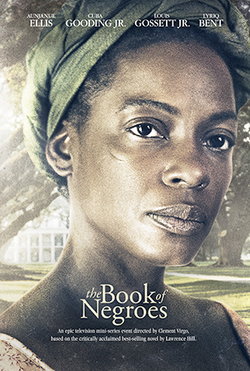I recently finished Book of Negroes by Lawrence Hill. It was phenomenal.
The story follows Aminata Diallo, a Muslim growing up in Western Africa when her parents are killed and she is captured and sent to the New World. The story documents the harrowing trip on a filthy slave ship where the captives launch a failed slave revolt. She then lives on Robinson Appleby’s harsh South Carolina plantation for years where an overseer secretly teaches her to read. She marries Chekura, who came with her on the ship, but their child is sold away from them.
Eventually, she is sold to Solomon Lindo in Charleston, who provides further tutoring in reading and math so she can be his secretary. Lindo is kinder than Appleby, and Aminata comes to have genuine affection for him and his wife. Still, she struggles being separated from her husband and baby and chafes at being a slave.
So when she visits New York with Lindo, she escapes. After doing work for the British during the American Revolution, she becomes responsible for writing down the names of black loyalists in the “Book of Negroes” so they can leave with the British to Canada. Of course, Canada turns out to be no better. The blacks face the same discrimination and hardship they were fleeing from in America. She loses her husband at sea, and the daughter they had while living together in New York is taken from her.
Finally, Aminata helps found a colony for freedmen in Sierra Leone funded by English abolitionists. The slaves are just as dependent on the abolitionists as they were on their masters, and the colony struggles for life. To make matters worse, on a visit back to the village she was taken from, the men guiding her scheme to sell her back into slavery.
The story is on pace to be a tragedy until Aminata goes to London to advocate for ending the slave trade and is reunited with the daughter taken from her so many years ago. She ends up supporting a school and writing her life’s story.
It’s honestly one of the best novels I’ve read in years for a few reasons. First, Hill presented us with a rigorously researched, believable world. Lots of small details demonstrate this. He took the time to dig into the languages someone like Aminata would have spoken and the process for making indigo in the 1700s. These details made the book something I could learn from. For example, a sizeable proportion of African captives practiced Islam, which plantation owners consciously suppressed. It’s a good reminder that Islamophobia predates 9/11.
Second, it has such a nuanced portrayal of betrayal and hypocrisy. We see the Africans selling each other into slavery and placing profit over the rights of their fellow human beings–the same evil the white plantation owners and ship captains are committing. We see the abolitionists committed to blacks’ wellbeing demonstrating the same paternalism when they insist on telling Aminata’s story for her or running the colony for freedmen that underlies slavery itself.
Finally, the story was ultimately an uplifting one. Aminata’s story will help abolitionists end Britain’s slave trade. And at the end of her life, Aminata is reunited with the daughter taken from her earlier. Her life was difficult in a way few of us could imagine. But in the end, she can take comfort in her daughter’s love and in the fact that she’s played a major role in fighting a grave injustice.
Book of Negroes is well worth your time.
